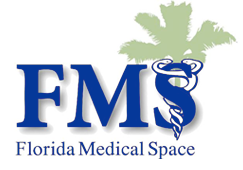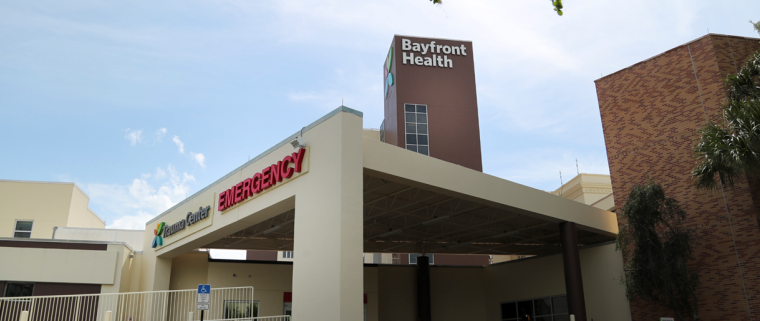The city’s oldest and largest hospital, Bayfront Health St. Petersburg, is set to be sold to nonprofit health care company Orlando Health, pending a vote by the City Council on July 9.
Community Health Systems Inc., the private company which currently owns the 480-bed facility, announced it had signed an agreement with Orlando Health on Thursday. The news comes about a year after city officials raised concerns about the management of the hospital, which sits on city-owned land and provides care to all, regardless of insurance status.
Orlando Health will take over operations and the long-term lease that Community Health Systems holds with the city, so long as council members approve next month, a news release said. A copy of the proposed lease obtained by the Tampa Bay Times shows it would run for 50 years.
The agreement states Orlando Health must continue to “provide charity care to needy and underserved persons” and “those who may otherwise be unable to afford or obtain care due to various possible adverse circumstances.”
City councilman Robert Blackmon, who was born at Bayfront St. Petersburg, said Friday that continuing the charity care was a “sticking point” in negotiations with Orlando Health. He said he will support the agreement, as did councilwoman Darden Rice.
After a one-on-one conversation with the company’s president and CEO David Strong a couple of months ago, Blackmon said he is confident charity care will continue at the hospital — and be even better under new management.
He pointed to a string of troubles at Bayfront under Community Health Systems, which purchased it in 2013. The hospital has seen layoffs and resignations of top executives, the ending of a partnership with the University of South Florida, and a Department of Justice investigation related to charity care finances in recent years.
Already frustrated, city officials grew more so in early 2019, when then-Bayfront CEO Joe Mullany gave council members a glowing annual report that did not align with problems playing out in public view.
“We’ve had difficult times in the last few years,” Blackmon said. “Orlando Health is the best-situated group to bring (Bayfront) back to the excellence it was once known for.”
Rice called the sale the “only reasonable solution” to the ongoing issues at the hospital.
“Ultimately, the new ownership is what is best for our community,” she said.
The city’s other six council members did not respond to requests for comment Friday. Mayor Rick Kriseman was not available for an interview.
About 15,000 patients were served at Bayfront St. Petersburg in 2018, according to hospital records. As of July 2019, the hospital employed 1,839 people and had 171 open positions.
Officials for Orlando Health declined to be interviewed, instead releasing a statement that said the sale should be final by Sept. 30.
Peter Young, a hospital consultant based in Fort Myers, said Orlando Health, which operates the only Level 1 trauma center in the Orlando area, is in an “expansion moment” of “picking up the skeletal remains” of hospitals in need of rejuvenation.
The purchase of Bayfront St. Petersburg would be the nonprofit’s debut in the Tampa Bay area, and make it so the nonprofit owns 14 total hospitals, according to the Orlando Sentinel. The sale also would mark the second Community Health Systems hospital acquired by Orlando Health, as it purchased Osceola County’s St. Cloud Regional Medical Center in April, the Sentinel reported.
Community Health Systems, based in Tennessee, has sold more than 50 hospitals since 2017 to pay off debt related to its $7.6 billion purchase of Florida’s Health Managed Associates in 2014, according to the National Business Journal.
Bayfront officials declined to be interviewed, and the company released a statement by Sharon Hayes, chief executive officer of the St. Petersburg hospital:
“Orlando Health is well-respected for their work to sustain and enhance medical services, and we are excited to partner with them to benefit our patients and communities,” she wrote. “This is an extraordinary time in health care and together we will continue to provide quality care for our neighbors, friends and family.”
Source: Tampa Bay Times


